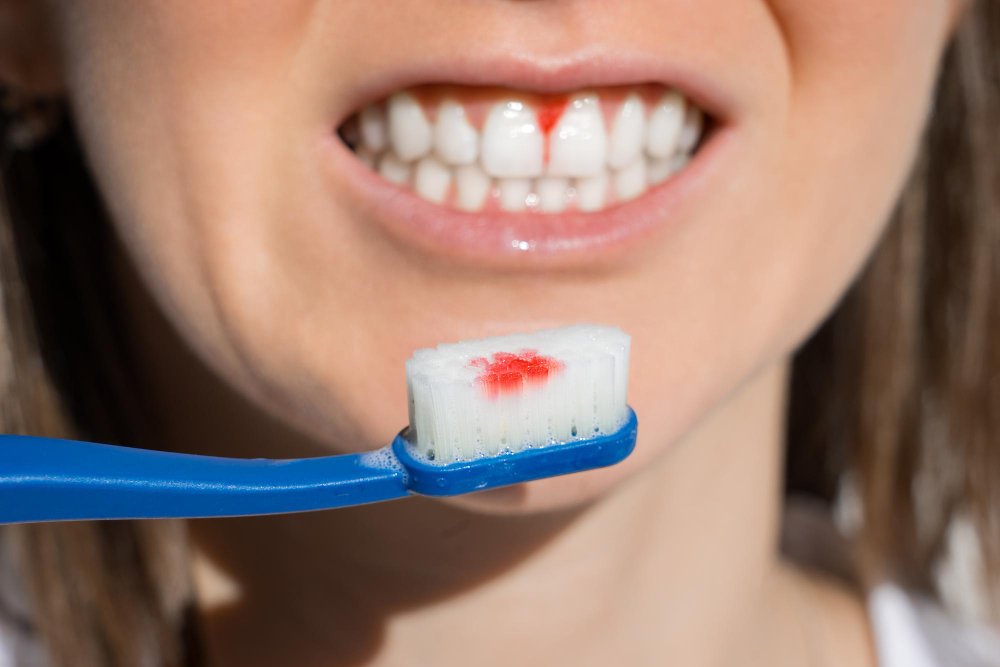Click to call
Gum Bleeding
What is it all about?
Gum bleeding, though common, should never be ignored. It’s a sign that something may be amiss with your oral health. Healthy gums don’t bleed when you brush or floss. Ignoring gum bleeding can lead to more significant dental issues and, in some cases, impact your overall well-being. This page will explore the causes, symptoms, and importance of addressing gum bleeding promptly.

Causes of Gum Bleeding
- Hormonal Changes
- Vitamin Deficiencies
- Medications
- Gum Disease (Gingivitis and Periodontitis)
- Poor Oral Hygiene
- Medical Conditions
- Ill fitting prosthesis

Symptoms of Gum Bleeding
- Gum sensitivity or tenderness.
- Presence of pus between teeth and gums.
- Unpleasant breath, often referred to as halitosis.
- Gums appearing red or swollen.
- Noticing blood in the sink after brushing or flossing.
- Experiencing gums that bleed easily when touched or during regular dental cleanings.
- Gums appearing to recede.
- Teeth feeling loose or shifting in position.
- Alterations in the way your teeth align when you bite.
- Experiencing pain or discomfort in the gums.

Treatment Options
Professional Cleaning: To start, our dentist will give your teeth a thorough cleaning to remove the stuff that causes gum problems.
Deep Cleaning (Scaling and Root Planing): If your gums need more help, they might do a deep cleaning to clear away the bad stuff and smooth your tooth roots to help your gums heal.
Medications: Sometimes, our dentist might give you special mouthwash or medicine to help clear up any infections and reduce gum swelling.
Healthy Habits: You can make a big difference by brushing your teeth regularly, flossing, and using a good mouthwash as your dentist recommends.

-
Eating Right: Eating a balanced diet with plenty of vitamins and minerals can help your gums stay healthy. Foods like fruits and veggies are good for your gums.
-
Taking Care of Other Health Issues: If you have other health problems like diabetes, managing those conditions can help your gums too.
-
Dental Procedures: In some cases, you might need surgery, but our dentist will discuss that with you if it’s necessary.
-
Hormone Help: If your gum issues are because of hormone changes, our dentist might suggest treatments that balance your hormones.
